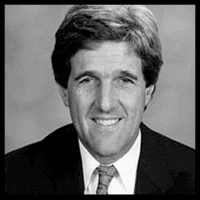 From the press release accompanying the Nice Guys? EP: ‘This next chapter in the Tonjip story again sees the band steering well clear of current musical trends, choosing instead to continue the unrelenting search for that sound which defines them as a collective, setting them apart from the gamut of industry types and scene-sters.’
From the press release accompanying the Nice Guys? EP: ‘This next chapter in the Tonjip story again sees the band steering well clear of current musical trends, choosing instead to continue the unrelenting search for that sound which defines them as a collective, setting them apart from the gamut of industry types and scene-sters.’ C’mon! Press releases are notoriously packed with wank, but let’s not get ahead of ourselves. Nice Guys? is a fun EP, loaded with heavy, pounding drums and melodic pop. The guitars are distorted, there are some simple vocal harmonies, the vocals are pleasant and the choruses have got some good hooks. But Tonjip aren’t reinventing the fuckin’ wheel, and their sound hardly sets them apart from the ‘industry types and scenesters’ that their PR team so mockingly decry.
But then, they didn’t write their press release did they? I shouldn’t hold a bit of wankery against them, especially when they’re not responsible for it, right?
Right. So I won’t. Either way though, Brisbane four-piece Tonjip aren’t doing anything too exciting here. There are flashes of intrigue like Selection Criteria, a weary, faded, reverb-heavy number with subdued vocals. It’s a slow, grounded track that unfortunately never elevates, refusing to move from first gear to second. Regardless, it’s nice enough.
Dow Jones’ Locker shows off the band’s ability to frustrate. Opening with a plaintive harmonica, and some clean, finger-picked guitar drenched in reverb, it’s a genuinely stunning way to start a track… ‘the ocean seemed to serene’ coos lead vocalist Phil Usher. Things are just about to take off and… it ends. At 1:50, it’s a wasted opportunity - a beautiful track that again, never takes off.
The radio-friendly pop-rock of the title track, Nice Guys?, and album closer Coolite – which apparently made its way to number 3 on the Triple J Net 50 – are entertaining efforts. Coolite especially is a surging, rocking, bass-heavy single, packed with more hooks than one song should be able to handle. There just isn't anything that sets Tonjip apart from the crowd. It’s only almost two minutes into Coolite that you’re really engaged, when Usher lets off a high pitched wail that makes you think you’re about to get your head thoroughly rocked the fuck out. But - again - it doesn’t happen.
(Originally published at fasterlouder.com.au).





